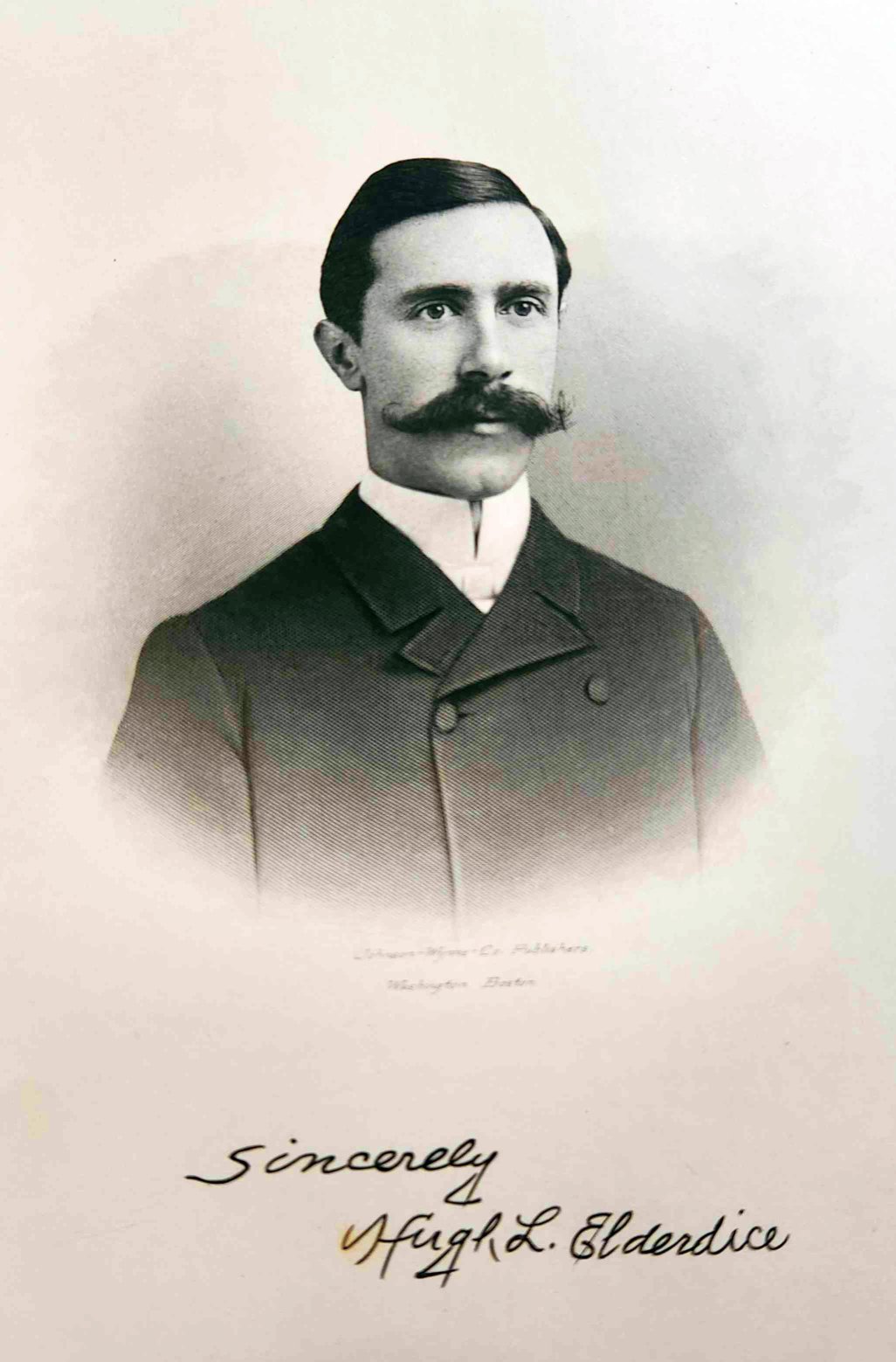
Hugh Latimer ELDERDICE, D.D., president of Westminster Theological Seminary at Westminster, Carroll county, Maryland, was born at Carlisle, Cumberland county, Pennsylvania on the 24th of July, 1860. He is the son of Rev. James Martin ELDERDICE and Mrs. Matilda Jane ELDERDICE. His father was for 44 years an itinerant minister in the Maryland conference of the Methodist Protestant Church; and is affectionately remembered for his modesty, his frugality and industry, and his deep and fervent piety. Hugh ELDERDICE, the father of James Martin, came from Armagh county, Ireland, and settled in Frederick county, Maryland. Hugh's mother was a STUART of Scotland.In his childhood he had absolutely perfect health; and like other healthy boys he was fond of fishing, swimming, hunting, and all out-of-door athletic sports. Part of his boyohood was passed in the village, part in the city, and much of it in the country. He was early taught to make himself useful about his home; and he had given him regular tasks which made him, as he says, "stable boy, master of the woodpile, and hand in the harvest field, clerk in the store, and later, country school-teacher." The effect upon his character of these regular duties, undertaken as a help to the family and for self-support, was to make him "self-reliant and ashamed of no form of honest toil." The influence of his parents was "preeminently strong upon his spiritual life," and shaped his religious creed and conduct.
Whatever else he might not be able to do, such a minister as Hugh Elderdice's father was sure to open the way to college for his son. After attending the public schools near his home, he entered the Western Maryland College, and in 1882, was graduated with the degree of A.B. Three years later he received from his alma mater the degree of A.M. From 1882 to 1884 he was in attendance at the Yale Divinity School at New Haven, Connecticut. At the beginning of the Senior year he was called home by the death of his father to take his pulpit and care fo the mother and younger children. After preaching for five years, he returned to Yale in September, 1889 and was graduated therefrom in 1890, with the degree of Bachelor of Divinity.
When he was 17, he began to teach school in Bedford county, Pennsylvania. After one year of teaching, he took up the study of medicine. Then the door to a college course was opened before him. Under Divine guidance, as he firmly believes, he decided upon the ministry as his life-work.
From 1885 to 1897 he was pastor and preacher in the Maryland Conference of the Methodist Protestant Church. In the latter year he became president of the Theological Seminary at Westminster, Maryland. From 1900 to 1904 he served as secretary of the General Conference of the Methodist Protestant Church. His relations with the Methodist Protestant Chuch have been close; and he has been honored by his fellow-Christians in that church with the position of secretary of their highest governing body, the General Conference, and by his election in 1897 to the presidency of the Westminster Theological Seiminary, a position which he still fills, with growing ability and ever widening influence. In 1899, St. John's College, Maryland, conferred upon him the honorary degree of Doctor of Divinity.
On the third of June 1891, he married Miss Annabel SMITH. They have had two children, a daughter and a son, both of whom are living in 1907.
Dr. Elderdice is known as an ardent advocate of temperance; and he is a member of the Prohibition party.
In manhood, as in boyhood, he has been fond of out-of-door exercises, and especially of fishing, lawn-tennis and hoseback riding. He has taken courses of physical culture, in the gymnasiums of the Young Men's Christian Association, as well as at college.
When asked to make, from his own experience and observation, suggestions to the young people of his state who wish to succeed in life, President Elderdice says: "What will most help young people to attain true success is, first, the Bible teaching (Proverbs III, 5-6) 'Trust in the LOrd with all thine heart, and lean not unto thine own understanding; in all thy ways acknowledge Him, and He shall direct thy paths.' And second, this motto: 'Do not shirk; lead the van; plan your work; work your plan.'"
pgs 102-105
- Bernard C. Steiner, PhD, Johns Hopkins University
Published by Johnson-Wynne Company, Washington, DC - 1907
presented by MidMdRoots at Frederick MDGenWeb